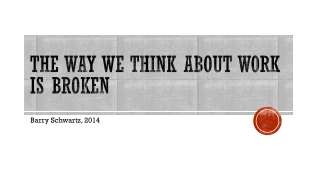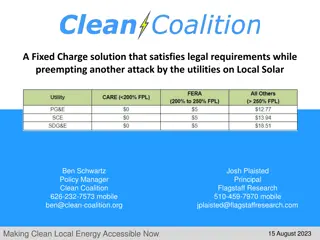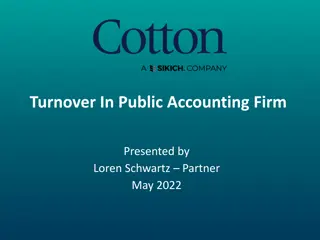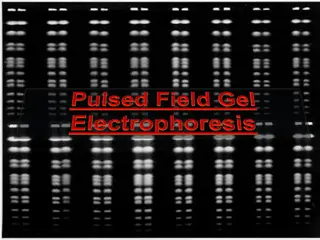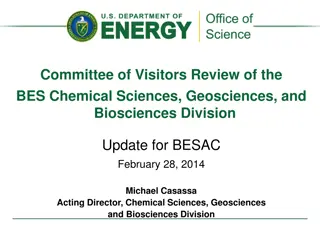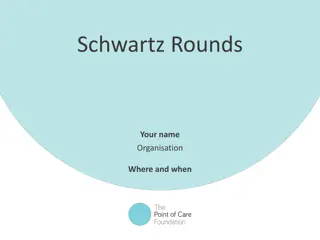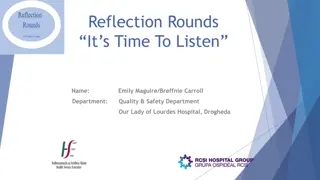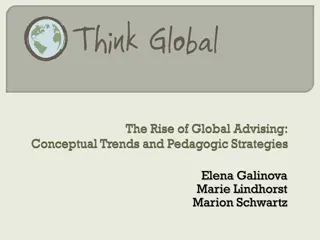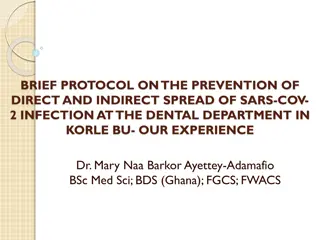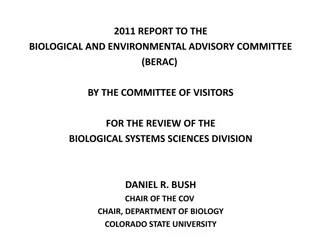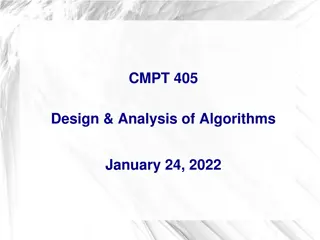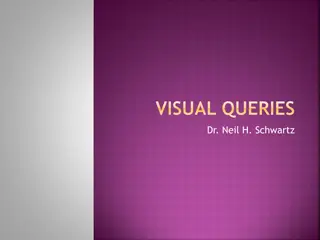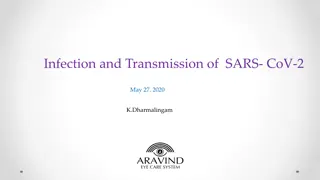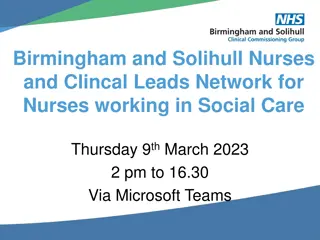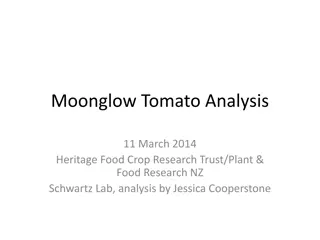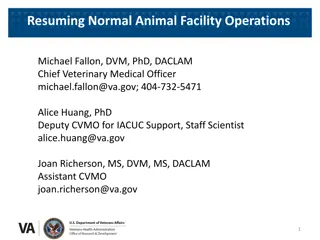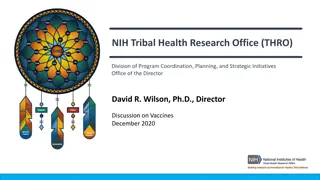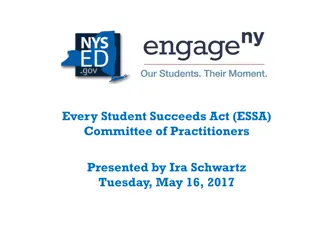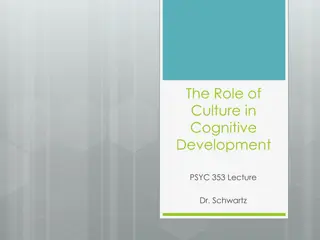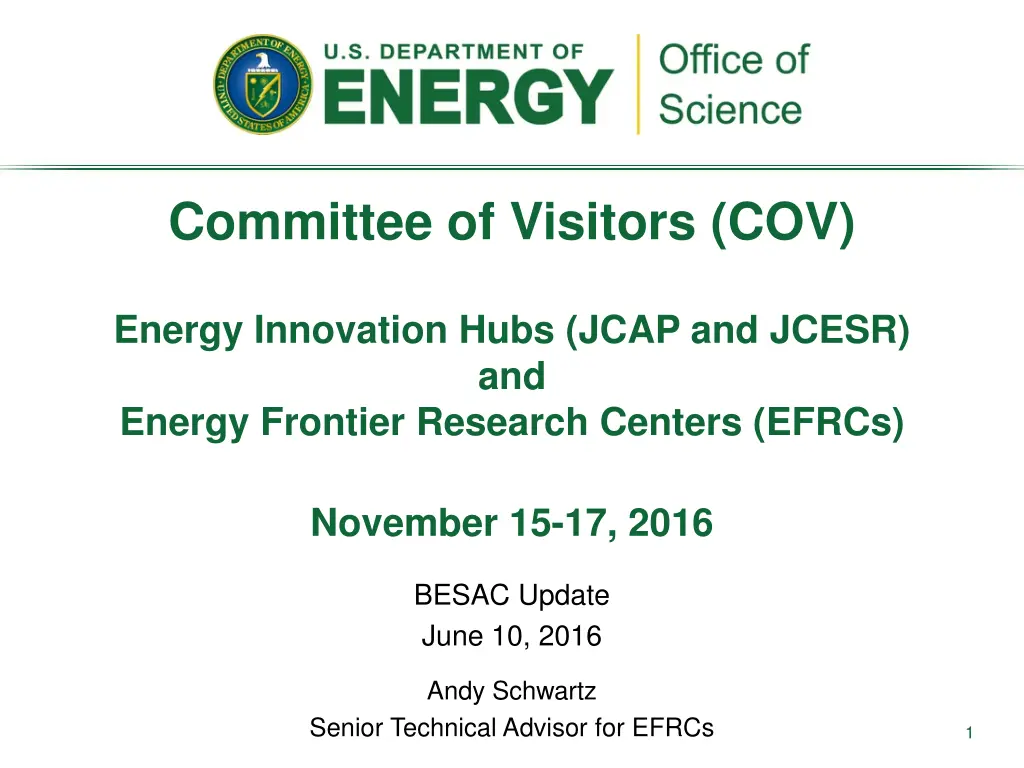
Insights into Energy Innovation Hubs and EFRCs Review
Discover the history, major findings, and recommendations from the 2013 Committee of Visitors (COV) review of energy innovation hubs and Energy Frontier Research Centers (EFRCs) within the DOE's Basic Energy Sciences advisory committee. Learn about the critical evaluation process, challenges faced, and the impact on funding decisions in the field of energy sustainability.
Uploaded on | 2 Views
Download Presentation

Please find below an Image/Link to download the presentation.
The content on the website is provided AS IS for your information and personal use only. It may not be sold, licensed, or shared on other websites without obtaining consent from the author. If you encounter any issues during the download, it is possible that the publisher has removed the file from their server.
You are allowed to download the files provided on this website for personal or commercial use, subject to the condition that they are used lawfully. All files are the property of their respective owners.
The content on the website is provided AS IS for your information and personal use only. It may not be sold, licensed, or shared on other websites without obtaining consent from the author.
E N D
Presentation Transcript
Committee of Visitors (COV) Energy Innovation Hubs (JCAP and JCESR) and Energy Frontier Research Centers (EFRCs) November 15-17, 2016 BESAC Update June 10, 2016 Andy Schwartz Senior Technical Advisor for EFRCs 1
History of COVs in SC/BES COVs are a standard part of BESAC/BES practice Triennial COV for each BES division Separate triennial COV for Hubs and EFRCs The first SC-BES COV was in 2002 This will be the second COV for Hubs/EFRCs and the 17th COV review in BES The previous Hubs/EFRC review was in May 2013 All previous COV reports and BES responses can be found at: http://science.energy.gov/bes/besac/bes-cov/ COV recommendations are taken very seriously by BES and have resulted in substantive changes FY2014 EFRC Recompetition review format and documentation
2013 COV Membership Review Panel Some crossover for a second read.
Major Findings of 2013 COV The unanimous judgment of this COV is that the outcome of the EFRC and JCAP procurement processes resulted in the funding of research with high potential for scientific impact in areas relevant to the DOE BES mission and led by highly recognized and accomplished scientists. The high scientific quality of the review and selection process reflects very favorably on the good judgment and competence of the BES staff and program managers. The review of the EFRC proposals was a formidable task that was generally well managed by the BES staff. The challenges were the consequence of the need to review and act on a large number of proposals on a short time scale. The reviewers were of high quality overall. Given the constraints of time and potential for conflict of interest, the BES staff did a good job of recruiting from international scientists, industry and some non-DOE government labs. However, there was a striking lack of diversity (gender and ethnic) in the reviewer pool. The BES management processes for the EFRCs are very well implemented and effective. A number of well thought out mechanisms are in place and have been actively used to identify issues and resolve them. A number of the communication mechanisms between the EFRCs and the science community and the public are excellent, and, overall, the EFRCs have told an inspiring story to the general scientific community concerning the value of fundamental research that supports energy sustainability. The solicitation and review process for the Hub was a very substantial task that was well managed by the BES staff. The panels selected for the reviews were judged to be excellent. The merit review process was thorough and well documented, and the award to the Joint Center for Artificial Photosynthesis (JCAP) was consistent with its ranking by reviewers as being the clear leader in both the first and second review panels. While both EFRCs and the Hub present new management challenges, the size and unique focus of the Hub makes it absolutely critical for success that an effective Hub management structure is established. Continued BES oversight for the JCAP Hub will be required to achieve the stated goals.
2013 COV Major Recommendations & BES Responses EFRCs COV Recommendation: Although EFRC award documents provided a clear rationale for why a given project was funded, the documentation for the proposals declined was limited to the reviewers comments and the total average score. We recommend that BES document the reasons for declining proposals that were reviewed well enough to be fundable. BES Response: BES concurs with the recommendation and will strengthen the documentation of the decision process for cases in which limited availability of funds dictates that fundable proposals be declined. Hub (JCAP) COV Recommendation: For the promise of the Hub to realize its full potential with significant impact, the COV recommends that BES take steps to ensure full integration and synergy of activities within the Hub to achieve the appropriate focus on the singular goal to be achieved for the funded project period (5 years). BES Response: BES concurs with the recommendation and has implemented additional oversight mechanisms, such as new self-assessment reports, to facilitate as well as monitor synergism and integration of JCAP activities in regard to its overall goal. 5
SEAB 2014 Hubs+ Task Force* - EFRC Recommendation EFRCs SEAB Recommendation: EFRCs are best judged by peer review, where the review process includes diversity of thought. There needs to be turnover among the EFRCs, and they should have only competitive renewals as is being planned. In addition, given the five-year funding cycle, we support the current EFRC management practice to have an intermediate review with teeth . Finally, we note that the current situation with all EFRC proposals (new and renewals) being reviewed at the same time, presents a significant challenge for the review process. The advantage of being able to have a comparative review across the entire program is offset by the challenge of reviewing so many proposals involving a large fraction of the community at the same time. DOE should consider a plan to avoid this congestion in the future. DOE Response: DOE agrees with this recommendation and plans to initiate EFRC solicitations every other year to provide greater opportunities for new submissions and to lessen the potential review congestion when all EFRCs are reviewed at the same time. < 50% renewal rate in 2014 2016 FOA for new centers *Hubs+ Task Force: Hubs, BRCs, ARPA-E, EFRCs (Chair: Cherry Murray) http://energy.gov/seab/downloads/report-hubs-task-force 6
Expected COV Charge (based on 2013) 1. For EFRCs and Hubs (JCAP and JCESR), assess the efficacy and quality of the processes used to: (a) solicit, review, recommend, and document proposal actions and (b) monitor active projects. 2. Within the boundaries defined by DOE missions and available funding, comment on how the award process has affected: (a) the breadth and depth of portfolio elements, and (b) the national and international standing of the portfolio elements.
2016 BES Hubs/EFRC Committee of Visitors Sylvia Ceyer, MIT COV Chair Hubs Panel Ernie Hall, GE Global Research Co-Chair EFRC Panel Jim McCusker, Mich. St. Rick Osgood, Columbia Co-Chairs Approx. 7 Panel Members Approx. 10 Panel Members FY2012 JCESR Selection FY2015 JCAP Renewal Annual Reviews, JCAP & JCESR Ongoing Hub Program Mgmt. FY2014 Recompetition FY2016 Mid-Term Review FY2016 FOA and Award Selection Ongoing EFRC Program Mgmt.
2016 COV Notional Agenda (2.5 days) Tuesday, November 15 Morning: Welcome, COV Charge, Introductory/Overview Presentations Afternoon: EFRC and Hubs Panel Breakouts (First Read) COV Executive Session; Q/A with BES Wednesday, November 16 Morning: First Read Continued Afternoon: Second Read (Hubs panelists read EFRC materials; some EFRC panelists read Hubs materials) COV Executive Session; Q/A with BES Thursday, November 17 Breakout Panels: Report Writing COV Executive Session and Closeout with BES Adjourn at Noon

